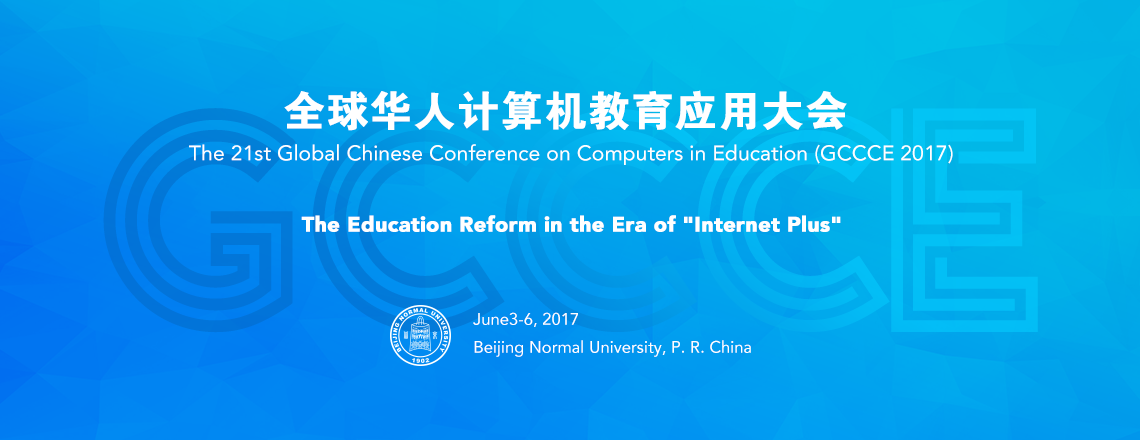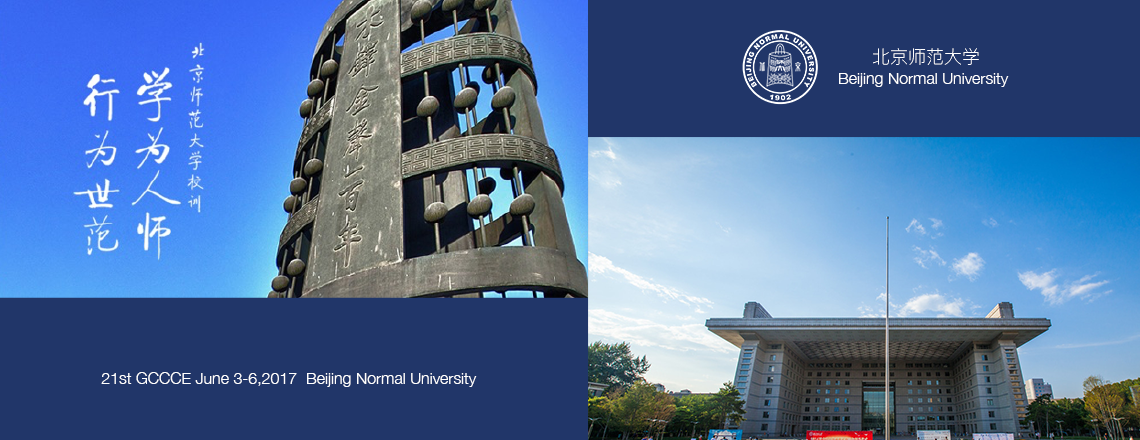
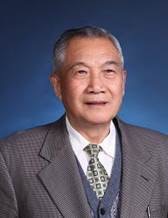
Prof. He Kekang
Prof. He Kekang, professor of Department of Education, doctoral tutor and director of Modern Education Technology Research Institute of Beijing Normal University, honorary professor of Northeast Normal University (tenured professor). Professor He has long been engaged in educational technology theory and applied research, especially in Internet-based network education application research. In 1993, he was appointed by the Academic Degrees Committee of the State Council as the first doctoral tutor of education technology in China. He has published and edited more than 20 academic articles, including monographs and teaching materials. Pro. He has also published more than 80 papers both at home and abroad. What is more, he has won numerous awards, including one national second prize as the lead participant, four second prize and two third prize by the State Education Commission, as well as the Beijing Municipal Science and Technology Progress Award, Outstanding Experts with Great Contribution, Outstanding teachers in Beijing with Patent for Invention; trained more than 50 doctoral graduates and dozens of master degree graduates; in 1995, he was selected in the British Cambridge Who's Who.
The main academic part-time positions of Prof. He Kekang include: Director General of National Education Technology Research Council; Vice President and Director of the Academic Committee of China Electrotechnical Education Association; Director of National Association of Academic Committee of Educational Technology; Deputy lead of Computer Education Advisory Group of National Normal Universities (June 2001 to May 2006); Executive Committee of ICCE (International Conference on Computers in Education); Standing Committee Member of GCCCE (Global Chinese Conference on Computers in Education); Executive Committee Member of Asia Pacific Branch of AACE (Association for the Advancement of Computing in Education).

Dr. Nian-Shing Chen
Speaker Bio:
Dr. Nian-Shing Chen is Chair Professor in the Department of Information Management at the National Sun Yat-sen University, Taiwan. He has published over 400 academic papers in the international referred journals, conferences and book chapters. One of his papers published in Innovations in Education and Teaching International was awarded as the top cited article in 2010. He is the author of three books with one textbook entitled “e-Learning Theory & Practice”. Dr. Chen has received the national outstanding research awards for three times from the National Science Council in 2008, 2011-2013 and the Ministry of Science and Technology in 2015-2017. His current research interests include assessing e-Learning course performance; online synchronous teaching & learning; mobile & ubiquitous learning; embodied cognition & game-based learning. Dr. Chen is serving as editorial board members for many international journals and guest editors for more than 15 special issues of international journals. He has also organized and chaired numerous international conferences and workshops in the area of advanced learning technologies. Dr. Chen is a senior and Golden core member of IEEE, ACM. He was the former chair of the IEEE Technical Committee on Learning Technology and the Editor-in-Chief for the SSCI-indexed journal of Educational Technology & Society.
Abstract: This talk aims to introduce the concept, design, and implementation about how to run an effective flipping course. Two essential components of a flipping course are first identified, pre-recorded interactive video lectures and highly interactive learning activities. In a traditional classroom, the most common teaching method for teachers is to provide one-way lecturing and students only have limited opportunity and restricted environment to learn a course. In the flipped classrooms model, students are asked to listen to pre-recorded interactive video lectures before attending face-to-face or cyber-face to face classroom. Instead of lecturing during a physical classroom or a cyber-face to face classroom, teachers now have the enough time to conduct highly interactive learning activities. Furthermore, teachers can adopt six different venues for students to learn various activities by utilizing six types of classrooms. These six types of classrooms are Physical classroom, Asynchronous cyber classroom, Synchronous cyber classroom, Mobile classroom, Social classroom, and Ubiquitous classroom. In terms of implementation, a systematic approach containing four stages will be elaborated to help teachers conduct an effective flipping course. These four stages are designing learning content, leading learning activity, guiding students with specific learning difficulties, and managing good learning atmosphere across multiple learning spaces.
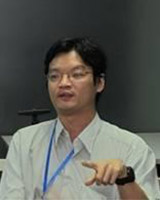
Dr. Huang Longxiang
Speaker Bio:
Dr. Lung-Hsiang Wong is currently a Senior Research Scientist of the Learning Sciences Lab at the National Institute of Education, Nanyang Technological University, Singapore, President-Elect of the Asia-Pacific Society for Computer in Education, Singapore Representative of the Third Technical Committee of the International Federation of Information Processing (IFIP), UNESCO, Associate Editor of IEEE Transactions on Learning Technologies. He has been engaged in research in learning technology for 25 years. His research interests are seamless learning, mobile learning, computer-assisted language learning, computer-supported collaborative learning, in-service teachers’ professional development, among others. He is the lead editor or the first author of the first two academic books on seamless learning in the world ("Seamless Learning in the Age of Mobile Connectivity", published by Springer; and "Move, Language Learning! – Investigating Seamless and Mobile Language Learning; published by Nanjing University Press). He proposed the framework of “Ten Dimensions of Mobile Seamless Learning ("10D-MSL") which is one of the most referenced seamless learning frameworks in the literature. He has been spearheading a research program on seamless Chinese Language learning and developed the MyCLOUD (My Chinese Language ubiquitOUs learning Days) model which has been blended into formal Chinese classes at five primary schools. He has published more than 150 academic papers (including 35 SSCI / SCI indexed journal articles), and has won APSCE Distinguished Research Award 2015 and eight Best/Outstanding Paper Awards at various international conferences (AI-ED, GCCCE, ICCE, mLearn, IEEE WMUTE).
Speech Abstract: Dr. Lung-Hsiang Wong will deliver his speech on "Between ‘Dream-making’ and ‘Down-to-Earth’: Towards cross-fertilization of diversified research directions in the learning technology field.” After decades of advancements, the field of educational technology has witnessed scholars from diversity backgrounds (such as technology-focused, learning theory-driven, and practice-oriented) are making remarkable contributions to the research and practice in their own ways. In the presentation, Dr. Wong will unpack the stated research orientations, and explore and compare the typical sources of inspirations in developing their research ideas in the lens of the TPACK framework. Using two mobile-assisted language learning project “Chinese-PP" and "MyCLOUD" as case studies, Dr. Wong will discuss how educational technology scholars of different orientations would achieve mutual understanding and synergy.
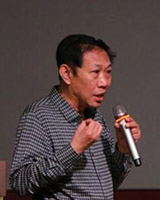
Prof. Guo Shaoqing
Speaker Bio:
Prof. Guo Shaoqing is the Dean and Professor of Educational Technology College, Northwest Normal University, Director of Internet Education Data Learning and Analysis Technology National Local Joint Engineering Laboratory led by National Development and Reform Commission, Director of Gansu Province Digital Education Engineering Laboratory, leading talent of Gansu Province. He has been mainly engaged in modern distance education, information technology and education, digital media resources research and development and technical support, as well as other direction of teachers’ professional development researches.
He also occupied other positions, such as member of Group of Experts of Ministry of Education Information, Education Technology Teaching Guidance Subcommittee of the Ministry of Education Higher Education Technology and Methodology Teaching Advisory Committee, the National Teacher Education Curriculum Resources Committee of Education Technology and Comprehensive Practice Committee. He was given Digital Fair Outstanding Contribution Award by AACE (AACE: Association for the Advancement of Computing in Education) in 2010.
Speech Abstract:Prof. Guo Shaoqing's speech theme is "Teacher capacity development iterative model research in Internet research community". This paper analyzes the main problems existed in teacher training, discusses the difference between teacher development and the necessity of on-demand training, analyzes and elaborates the basic characteristics of teacher learning from five perspectives: case-based scenario learning, problem-based action learning, group-based cooperative learning, experience-based reflection learning; discussed three ways to teachers' learning ability development under resource support: self-learning, self-organization learning, put forward the network hybrid training iterative model based on the third approach and illustrate the application of the model to illustrate the model through the network training platform developed by the research team (currently 36 training institutions and Gansu Province to provide support for all teachers training) and other case examples of project application.

Dr. Zhu Qifeng
Speaker Bio:
Dr. Zhu Qifeng obtained his B.E. degree from Tsinghua University in 1994, a Ph.D., from Department of Electronics, University of California, Los Angeles, USA, and a Post-doctoral degree and a senior fellow at the University of California at Berkeley. As a world-renowned expert of artificial intelligence voice recognition, he participated in the speech recognition research with the US Department of Defense DARPA and is committed to the study of voice technology and artificial intelligence technology in foreign language teaching application later on. Dr. Zhu founded Arivoc in the United States in 2007. After returning to China, he founded Arivoc International Education Group (NEEQ: 834987) and served as the chief scientist and chairman of the company in 2010, and worked as a part-time researcher at the Yangtze Delta Region Institute of Tsinghua. He also founded Beijing Competency Education Research Institute in 2016. He undertook research of two research topics integration of two national education informatization and disciplinary by the Central Audio Education Center and the Foreign Language Teaching Committee of the Education Society.

Dr. Carolyn Penstein Rosé
Speaker Bio:
Dr. Carolyn Rosé is a Professor of Language Technologies and Human-Computer Interaction in the School of Computer Science at Carnegie Mellon University. Her research program is focused on better understanding the social and pragmatic nature of conversation, and using this understanding to build computational systems that can improve the efficacy of conversation between people, and between people and computers. In order to pursue these goals, she invokes approaches from computational discourse analysis and text mining, conversational agents, and computer supported collaborative learning. Her research group’s highly interdisciplinary work, published in 200 peer reviewed publications, is represented in the top venues in 5 fields: namely, Language Technologies, Learning Sciences, Cognitive Science, Educational Technology, and Human-Computer Interaction, with awards or award nominations in 3 of these fields. She serves as Past President of the International Society of the Learning Sciences and Executive committee member of the Artificial Intelligence in Education Society. She has served as program co-chair for numerous international conferences, workshops, and symposia. She also serves as Executive Editor of the International Journal of Computer Supported Collaborative Learning and Associate Editor of the IEEE Transactions on Learning Technologies.
Speech Abstract: Computational models of social interaction in textual form reveal layer upon layer of insight about student orientation towards one another as well as towards their experiences in the environment. These insights allow us to make sense of patterns of attrition and learning that occur in online courses and inform design of interventions to support improved outcomes. In particular, data from Massive Open Online Courses (MOOCs) offer evidence of the association between types of conversational interactions and retention, team project quality, and learning in the environment. These insights inform design of interventions capable of supporting improved outcomes in team based MOOCs. This talk reports on research working towards persistent social interaction throughout large online courses in the form of technology-supported team based projects. In particular, we propose what we refer to as a deliberation-based team formation procedure to improve the selection and initiation process used to start team-based learning in an effective way. Results from validation studies demonstrate that project teams formed through this technology-enhanced process are more successful at a collaborative knowledge integration task. Data from two deployment studies in real MOOCs are consistent with these findings and demonstrate the potential of this paradigm for real world impact. Implications for promising new directions in online group learning will be explored.

